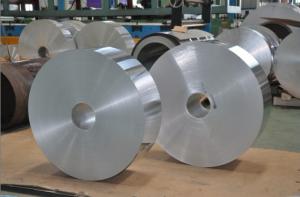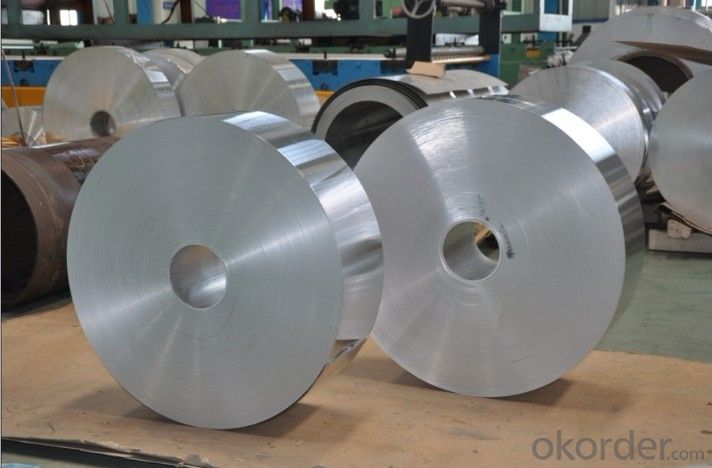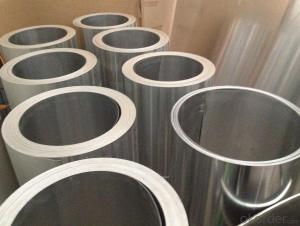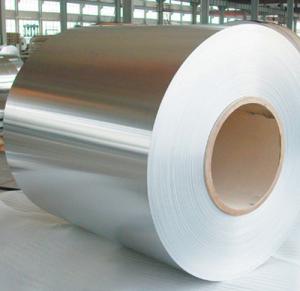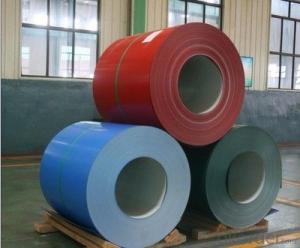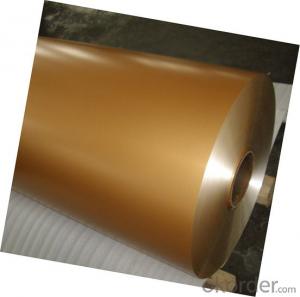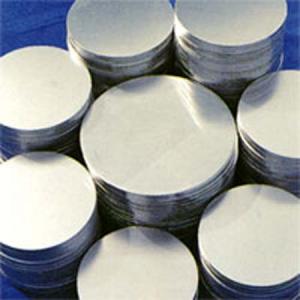Custom Mill Finished Aluminum Coil and Sheet from China
- Loading Port:
- Shanghai
- Payment Terms:
- TT or LC
- Min Order Qty:
- 5 m.t.
- Supply Capability:
- 9000 m.t./month
OKorder Service Pledge
OKorder Financial Service
You Might Also Like
Specifications
1)0.02mm-200mm aluminum sheet,coil,foil,circle
2)mill finish mirror finish
3)process: CC&DC
4)paper interleave & PVC Film
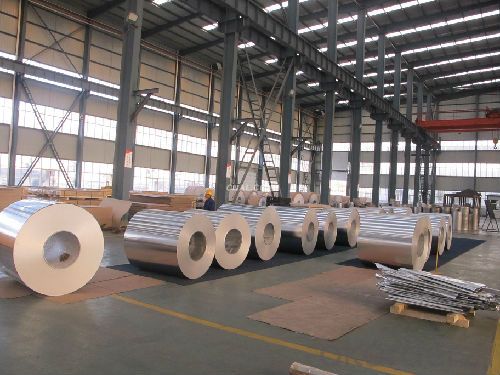
product | thickness | alloy | temper | |
aluminium sheet,coil,foil, circle,strip | 0.16-200mm | 1070 1060 1050 1145 1235 1100 1200 3003 8011 3005 5005 3105 | H18 H26 H14 H24 H22 O | |
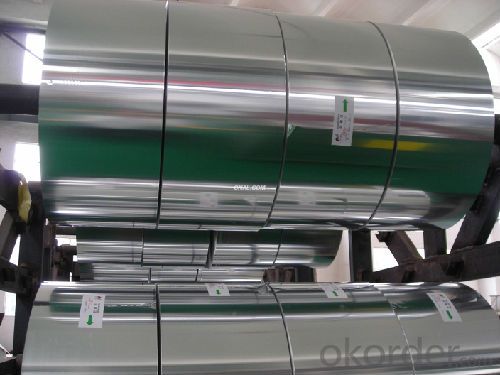
Our Services
Why Chose us?
Factory | We are a factory manufacturing aluminum coil, sheets, foil. strip, circle, ACP and coated coil. We have best production capability, best quality control, best Service. |
24-hours working | Contact line is 24-hours available for your any question before sales and after sales. |
Flexible MOQ | Any quantity is available if we have your specification in stock. |
Shipping company | Introduce to you our good partner--experienced shipping company with competitive price |
OEM service: | Accept your own design |
Strict Quality Controlling | CE/ISO/IAF/SGS listed |
Trade assurance service | We are Alibaba Assessed years Gold Supplier and suppport trade assurance service. |
Free Sample | We supply sample for free. |
Shipping company | Introduce you our good partner--experienced shipping company with competitive price |
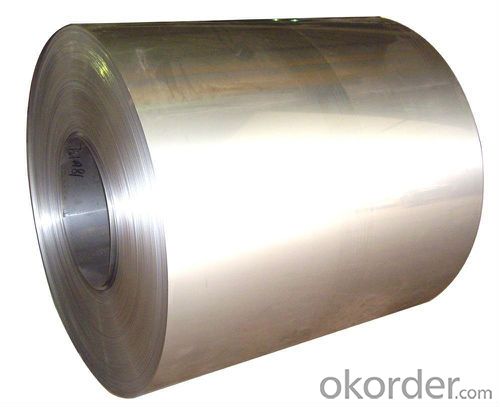
- Q: Is it safe or practical to utilize aluminum coils in kitchen settings?
- <p>Aluminum coils can be used in the kitchen, but with certain considerations. They are often used in cookware due to their excellent heat conductivity, which allows for even heating. However, there are concerns about aluminum leaching into food, especially at high temperatures or in acidic environments, which could potentially have health implications. It's recommended to use aluminum cookware with a protective coating or to opt for cookware made from other materials like stainless steel or cast iron if there are health concerns. Always check the manufacturer's guidelines for safe usage and cleaning to ensure longevity and safety.</p>
- Q: My front door is scraping the aluminum frame door jam thing on the bottom. Also underneith the door itself it seems like there is a huge aluminum device covering the whole bottom of it and an aluminum weather stipper built into that. Is my only option to have the door pulled off. Or could I maybe grind of file down the aluminum on the bottom?
- You okorder / Best to do the right way, once you shave the bottom of the door there is no undo Hope it helps Lr
- Q: What is the average lifespan of aluminum coils?
- The average lifespan of aluminum coils can vary depending on various factors such as the quality of the aluminum, the environment it is exposed to, and how well it is maintained. However, on average, aluminum coils can have a lifespan of around 15 to 20 years. With proper installation, regular cleaning, and maintenance, aluminum coils can last even longer. It is important to note that regular inspections and upkeep are crucial in prolonging the lifespan of aluminum coils and ensuring optimal performance.
- Q: How do aluminum coils contribute to sustainable transportation systems?
- Aluminum coils play a significant role in promoting sustainable transportation systems in several ways. Firstly, aluminum is a lightweight material that helps reduce the overall weight of vehicles, resulting in improved fuel efficiency and reduced carbon emissions. The use of aluminum coils in vehicle manufacturing can contribute to enhancing the fuel economy of automobiles, which is crucial for sustainable transportation. Moreover, aluminum is a highly recyclable material, with nearly 75% of all aluminum ever produced still in use today. This recyclability factor makes aluminum coils a sustainable choice as they can be easily recycled and reused without compromising their quality. By incorporating recycled aluminum coils into vehicle production, manufacturers can reduce energy consumption and greenhouse gas emissions associated with primary aluminum production. Additionally, aluminum is highly resistant to corrosion, making it a durable material for various automotive applications. The longevity of aluminum coils ensures that vehicles require less maintenance and replacement parts, reducing waste and contributing to sustainable transportation systems. Furthermore, the use of aluminum coils in electric vehicles (EVs) is particularly advantageous. EVs require lightweight components to maximize battery efficiency and increase the driving range. Aluminum coils fulfill this requirement by providing the necessary lightweight construction without compromising safety or performance. By enabling the production of lightweight EVs, aluminum coils contribute to the wider adoption of electric vehicles, which have a significantly lower carbon footprint compared to traditional internal combustion engine vehicles. In summary, aluminum coils contribute to sustainable transportation systems by reducing vehicle weight, improving fuel efficiency, and reducing carbon emissions. Their recyclability, durability, and compatibility with electric vehicles further enhance their sustainability credentials. Incorporating aluminum coils in vehicle manufacturing is a step towards achieving a greener and more sustainable transportation future.
- Q: How are aluminum coils tested for quality?
- Aluminum coils are tested for quality through various methods including visual inspections, thickness measurements, surface roughness analysis, and mechanical testing such as tensile strength and elongation tests. Additionally, other quality control measures such as chemical composition analysis, corrosion resistance testing, and adherence to specific industry standards are also carried out to ensure the overall quality of aluminum coils.
- Q: Are aluminum coils compatible with other building materials?
- Yes, aluminum coils are generally compatible with other building materials. Aluminum is a versatile material that can be used in various construction applications. It is commonly used for roofing, cladding, gutters, and other exterior elements of buildings. Aluminum's lightweight nature and corrosion resistance make it easy to integrate with other materials such as wood, concrete, glass, and steel. Additionally, aluminum coils can be easily shaped and formed to fit the desired design requirements, allowing for seamless compatibility with different building materials.
- Q: What are the different coil handling methods for aluminum coils?
- There are several different coil handling methods for aluminum coils, each designed to ensure safe and efficient handling and storage of these valuable materials. 1. Manual Handling: This method involves using manual labor to physically lift and move the aluminum coils. It requires proper training and the use of personal protective equipment to avoid injury. Manual handling is suitable for smaller coils or when equipment is not available. 2. Forklift Handling: Forklifts are commonly used for handling aluminum coils. They are equipped with specially designed coil lifters or C-hooks to securely lift and transport the coils. Forklifts provide a more efficient and faster method for handling larger and heavier coils. 3. Coil Lifters: Coil lifters are specialized lifting devices that are designed specifically for handling aluminum coils. These lifters use a combination of clamps and hooks to securely grip the coil during lifting and transport. They are often used in conjunction with cranes or forklifts. 4. C-Hooks: C-hooks are another common method for handling aluminum coils. These hooks are attached to cranes or other lifting equipment and are designed to cradle the coil securely. C-hooks allow for easy and controlled movement of the coil, and they are suitable for both small and large coils. 5. Coil Tippers: Coil tippers are used to tilt the coils horizontally or vertically for easier loading or unloading. This method helps to reduce the risk of damage to the coils during handling and improves efficiency by allowing coils to be easily placed on or removed from racks or pallets. 6. Coil Carriers: Coil carriers are specialized trailers or trucks designed to transport aluminum coils. They have built-in coil cradles or beds that securely hold the coils during transportation. These carriers often have adjustable supports to accommodate different coil sizes and prevent shifting during transit. Overall, the choice of coil handling method depends on the size, weight, and specific requirements of the aluminum coils. It is important to use the appropriate handling method to ensure the safety of workers, prevent damage to the coils, and maintain the quality of the aluminum.
- Q: Relevant question 5Excuse me, what's the meaning of your "deoiling effect"? And you answer two kinds of performance, my understanding is that the oil removal effect is not good, lead to aluminum volume is not neat, what is the difference between the two? Solution, thank you
- Oil removal effect is not good rolling oil remover oil extrusion is not complete, coiling in aluminum strip surface residual oil too much, after coiling because of oil coated on the aluminum coil inside played a supporting role in the beginning of aluminum roll edge round, with aluminum coil of diameter increases, the inner pressure increases.
- Q: Are aluminum coils suitable for decorative purposes?
- Yes, aluminum coils are suitable for decorative purposes. Aluminum is a versatile material that can be easily molded into various shapes and sizes, making it suitable for decorative applications. Its lightweight nature, durability, and resistance to corrosion make it an ideal choice for both indoor and outdoor decorative projects. Additionally, aluminum can be finished with different coatings and finishes, such as powder coating or anodizing, to enhance its aesthetic appeal. These coatings can provide a wide range of colors, textures, and patterns, allowing for endless design possibilities. Furthermore, aluminum coils can be easily formed into intricate designs, making them suitable for decorative elements like trims, accents, panels, or even sculptures. Overall, aluminum coils offer a cost-effective, durable, and aesthetically pleasing option for various decorative purposes.
- Q: How do aluminum coils perform in high-pressure applications?
- Aluminum coils perform well in high-pressure applications due to their excellent strength-to-weight ratio and corrosion resistance. They are capable of withstanding high pressures without deformation or failure, making them a reliable choice for various industrial and HVAC systems.
Send your message to us
Custom Mill Finished Aluminum Coil and Sheet from China
- Loading Port:
- Shanghai
- Payment Terms:
- TT or LC
- Min Order Qty:
- 5 m.t.
- Supply Capability:
- 9000 m.t./month
OKorder Service Pledge
OKorder Financial Service
Similar products
Hot products
Hot Searches
Related keywords
